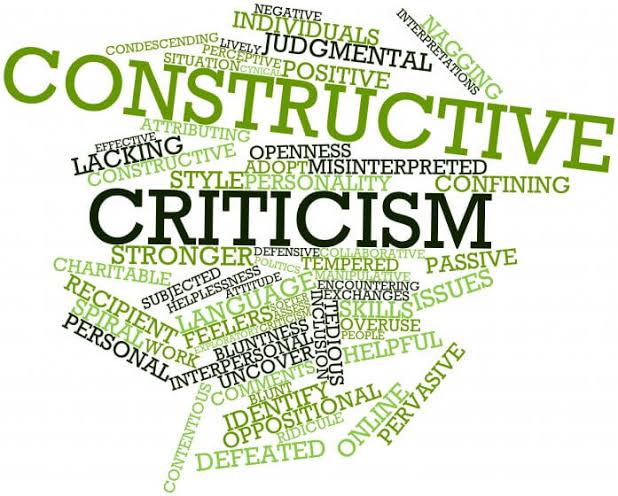Addicted To Tear-Downs: The Hidden Dangers Of Criticism Addiction
Posted on November 5, 2024
PRINCE EZE UGOCHUKWU

Criticism Addiction Is The Ultimate Excuse to Avoid Self-Reflection and Personal Growth. Criticism can be a subtle yet insidious addiction, lurking beneath the guise of a harmless habit or even a virtuous trait.
What starts as a mere penchant for nitpicking can spiral into a compulsive behavior that wreaks havoc on our relationships, mental health, and overall well-being. Just like any other addiction, the allure of criticism exploits the brain’s reward system, flooding it with feel-good chemicals with each scathing comment or condescending remark. Yet, this fleeting high comes at a steep price, gradually sabotaging our ability to forge meaningful connections. It’s time to shine a light on this hidden danger and confront the damaging consequences of criticism addiction.
Criticism addiction manifests as a revolving door syndrome in relationships, loyalty, and alliances, where connections are formed and discarded with alarming frequency based on the latest critique or opinion. This constant flux transforms personal and professional interactions into a musical chairs game, with individuals shifting allegiances in a desperate pursuit of validation. As a result, relationships become transactional, viewed as disposable and easily replaceable, leading to a culture devoid of genuine connection. Recognizing the warning signs of this addiction is crucial; only by addressing its harmful consequences can we hope to cultivate stronger, more authentic relationships that stand the test of time.
Recognizing the warning signs of criticism addiction is crucial in breaking free from this destructive pattern. One prominent indicator is an increase in the frequency and severity of criticism, where you find yourself nitpicking others more often or with greater harshness than before. This compulsive need to criticize can feel overwhelming, driving you to voice your opinions even when it’s neither necessary nor appropriate. Additionally, using criticism as a coping mechanism for stress, anxiety, or discomfort often serves as a red flag. If you notice that your interactions are dominated by criticism rather than positivity, it may signal a deeper issue.
Feeling a sense of superiority or self-righteousness while criticizing others, along with justifying hurtful comments, can further highlight this addiction. Ultimately, if your critical tendencies are damaging relationships or pushing loved ones away, or if you find yourself anxious when unable to voice criticism, it’s essential to take a step back and assess your behavior. Acknowledging these signs is the first step toward addressing and overcoming criticism addiction, paving the way for healthier, more constructive interactions.
Criticism addiction manifests in a pervasive cycle that detracts from meaningful discourse and personal relationships. Rather than providing constructive feedback that encourages growth, addicted critics hone in on imperfections, often employing aggressive language and a condescending tone. This behavior not only reflects a lack of empathy but also reveals a troubling inconsistency; these critics frequently hold others to standards they themselves do not adhere to, which can lead to feelings of alienation among peers.
Moreover, their approach often skews towards hypocrisy, as they may chastise others for behaviors they themselves exhibit. As a result, their repetitive focus on the same grievances fosters an environment of negativity, undermining opportunities for genuine connection and mutual understanding. This self-righteous attitude not only distorts their perspective but also serves as a defensive mechanism to divert attention from their own vulnerabilities, further entrenching them in a cycle that is detrimental to both themselves and those around them.
In online communities, the behavior of addicted critics often manifests as “armchair quarterbacking,” where they issue harsh opinions without offering any constructive solutions. This tendency to simply criticize without contributing meaningfully not only stifles productive dialogue but can also escalate negativity, especially when they join in the collective condemnation of others, thereby “piling on” during moments of criticism..
Offline, their penchant for constant complaining and gossiping can poison social atmospheres, as they habitually seek to point out faults rather than celebrate successes. While it’s important to recognize that everyone can display critical behavior occasionally, addicted critics consistently exhibit these traits to an extreme degree.
Keep in mind that everyone can exhibit critical behavior at times, but addicted critics display these traits consistently and in excess. Recognizing these characteristics can help you navigate interactions with them and protect your own well-being.
Categorised as : Opinion
No Comments »









